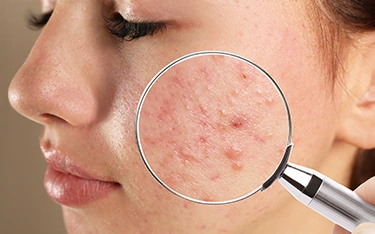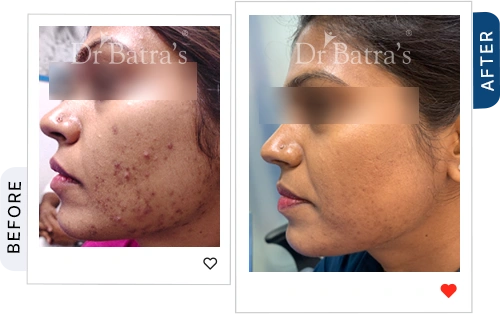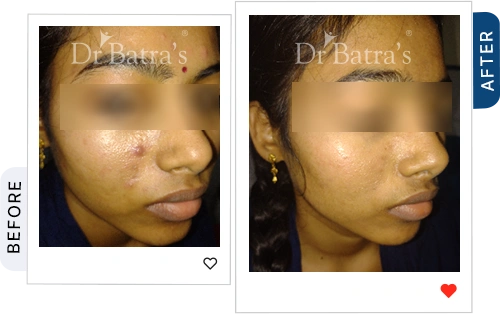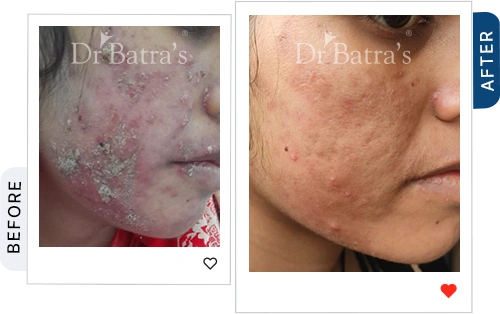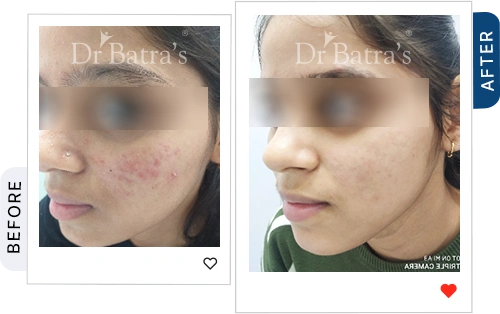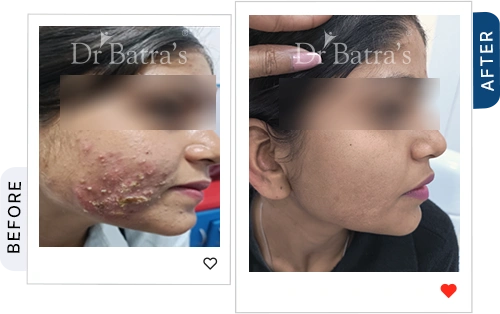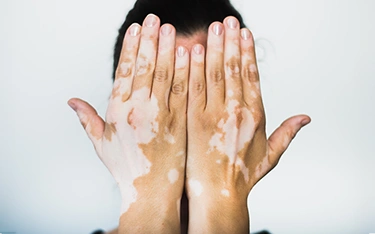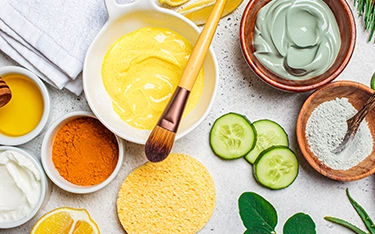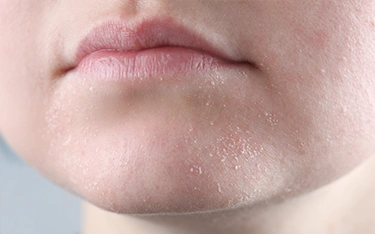You might use the words acne and pimples to describe any breakout but are they really the same? If you've ever felt confused or frustrated about the difference, you're not alone. Understanding the acne vs pimples difference can help you treat your skin more effectively and feel more confident in your skincare journey.
While pimples are usually temporary bumps, acne is a more persistent skin condition involving repeated breakouts. And both can affect not just your skin but your self-esteem too.
What is Acne?
Acne is a chronic inflammatory skin condition caused when pores get clogged with excess oil (sebum), dead skin cells, and bacteria. It can lead to a variety of skin lesions including whiteheads, blackheads, papules, pustules, nodules, or cysts. Acne can affect the face, back, chest, or shoulders — and often needs long-term care and treatment.
What is a Pimple?
A pimple is a single bump on the skin, often red, swollen, and sometimes pus-filled. It may be a one-off occurrence or part of a recurring pattern. Pimples are usually caused by clogged pores due to excess oil, dirt, stress, or hormonal changes.
Key Differences Between Acne and Pimples
Appearance and Characteristics
- Acne includes a group of blemishes: blackheads, cysts, pustules, etc.
- Pimples are usually isolated bumps and less severe.
Causes and Triggers
- Acne is driven by hormones, genetics, PCOS, and oil overproduction.
- Pimples can result from clogged pores, improper skincare, or stress.
Duration and Severity
- Acne lasts longer and needs medical attention.
- Pimples may heal within days.
Treatment Approaches
- Acne may need consistent treatment with lifestyle adjustments.
- Pimples often respond to spot treatments.
How to Treat Acne and Pimples
Mild cases may improve with over-the-counter products. However, persistent breakouts often require personalised care:
- OTC creams, salicylic acid, and benzoyl peroxide can help.
- For deeper acne, consult a doctor for oral/topical medication.
- Professional treatments like peels or lasers may be advised.
Get expert help for recurring breakouts
Skincare Tips for Managing Acne and Pimples
- Use gentle cleansers designed for acne-prone skin.
- Choose non-comedogenic (non-pore clogging) products.
- Moisturise daily — even oily skin needs hydration.
- Avoid picking or popping pimples.
- Use targeted spot treatments when needed.
- Reduce triggers: stress, poor sleep, processed foods.
Switch to a skin-friendly routine today
Common Myths About Acne and Pimples
- Myth: Only teenagers get acne.
Fact: Adult acne is also common.
- Myth: Poor hygiene causes pimples.
Fact: Overwashing can actually worsen breakouts.
- Myth: You should pop pimples to get rid of them.
Fact: This can lead to scarring and infection.
- Myth: All acne looks the same.
Fact: Acne varies in severity and type.
When to See a Doctor for Acne or Pimples
If breakouts are painful, frequent, or leave scars, consult a doctor. Early intervention prevents long-term damage and boosts confidence.
